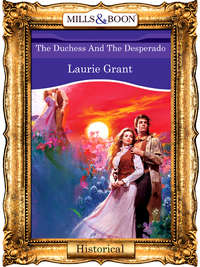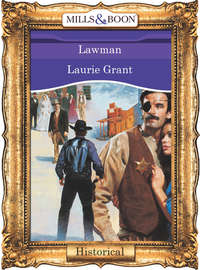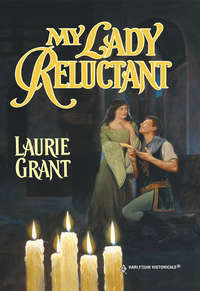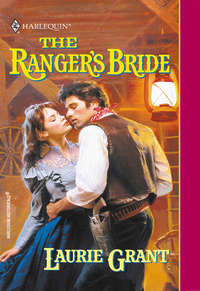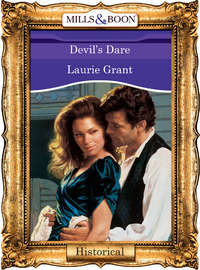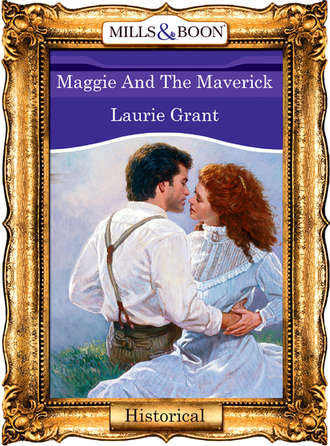
Полная версия
Maggie And The Maverick
“Read the letter,” the old woman said. “There’s more to this here tale, but she said ya was to read it first.”
Realizing that the old woman wasn’t going to make it any easier, he gave up and unfolded the letter, holding it so that the bright noon sunlight made it easier to read.
Dear Garrick, I know I hurt you when I ran away. It was awful of me to treat you that way, after all you had been through in the war, but I just couldn’t help it. I guess I wasn’t strong enough and good enough to be the wife you deserved, and I’m sorry about that, but I just couldn’t be someone I’m not. I’m trying to make it up to you now by sending our boy. I know you won’t believe he’s yours, and I don’t reckon I blame you, but his birthday is New Year’s Day, 1866—which, if you count back, is nine months after you came home. I named him John Garrick. I know you hate me now, Garrick, and you have a right. But if you ever loved me, I hope you’ll be good to our son. I know he’ll be better off with you.
Cecilia
He read it through twice before lifting his eyes from the paper.
“It tells me his name and his birthdate, but it doesn’t tell me what I asked you. Why now? She’s had him for three years. Why is she sending him to me now? What’s she up to?”
The woman looked uneasily at the boy, then back at Garrick. “Bigamy, that’s what. I’m sorry to be the one t’tell ya that, but it’s the truth.”
“Bigamy? She’s married to someone else?”
“That’s what bigamy means, don’t it?” the old woman responded, adding a regretful tsk, tsk. “Yup, she’s Miz Cecilia Prentice—has been ever since soon after she showed up in Houston in ‘65 and started workin’ at the hotel. Pretty as a picture, she was. Men flocked ‘round her like flies around a picnic. It warn’t a week afore Will. Prentice up and married her and cut out the competition.”
“But she was—is,” Garrick corrected, “my wife! We were never divorced! How did she explain, uh, being in the family way to her new ‘husband’?” He felt his face flush; one didn’t discuss such delicate issues as pregnancy with a lady, even one who had brought him the news that his wife had committed bigamy.
The old woman chuckled again, a sound Garrick was growing to heartily detest. Nothing they were talking about was funny.
“Who knows? It’s the oldest trick in the book, fobbin’ off some other man’s child on a husband, ain’t it? You’d think a feller wouldn’t be dumb enough to think that big healthy baby was his, come early, but I reckon he was, ‘cause he used to be proud as a banty rooster of him,” she said, nodding toward the boy.
“’Used to be?”’ Garrick echoed. “What happened?”
“There was an accident…they was comin’ home from a barbecue one night. I was keepin’ the child for ‘em. A storm blew up and lightnin’ was flashin’, and the horse got skeered and run away with them. The shay overturned and Mr. Prentice was thrown clear, but Miz Cecilia, she was trapped under a wheel. She was hurt bad, and it looked like she might die on the spot. Anyway, I reckon she was afeered for her immortal soul, ‘cause she confessed to will Prentice that that boy wasn’t his.”
“Did she.did she.?” Garrick couldn’t bring himself to say the words.
“Did she die?” Martha Purdy finished the question for him. “No, but she’s been bedridden ever since. I take care o’her every day, her an’ the boy. Prentice told her he wouldn’t keep the boy under his roof any longer, not now that he knew the brat wasn’t his.”
Garrick felt his jaw drop as nausea churned in his stomach. He could no longer feel the burning hostility that had flamed up only moments ago toward Cecilia. Now he could only think of the cruelty Prentice had shown to the boy and his injured mother.
“I’ll keep the boy until his mother—” he couldn’t bring himself to name Cecilia just now “—recovers. Then I imagine she’s going to want to leave that sorry excuse for a husband, who won’t even keep the child he thought was his ever since he was born. And you can tell her that if she’s willing—” He was about to say that he’d take her back.
“Mr. Devlin,” the old woman interrupted, “you don’t understand. Cecilia ain’t gonna recover. Her back was crushed in the accident. She’s paralyzed—cain’t move from her waist down. She don’t hardly eat, and she gets weaker every day. She ain’t gonna make old bones, Mr. Devlin. The only way she’s gonna leave Prentice—” she glanced around, to make sure the boy was still entranced with the dog “—is by dyin’. And I don’t reckon it’s gonna be too long. She jest seemed t’lose what little will to live she had left when Prentice said the boy had to go.”
Garrick felt as if he were in the middle of a nightmare. This couldn’t be happening!
“But she wrote me that she was coming herself!” he protested. “She didn’t say anything about a child!”
The old woman sighed. “Mebbe she thought you wouldn’t take the boy iffen you’d knowed he was comin’, an’ mebbe she thought you wouldn’t turn him away once you seen your son’s face.”
Just this morning Garrick had been full of nervous but happy anticipation at seeing Cecilia again—and now she was dying?
“I—I’ve got to go to her—see her,” he mumbled, looking wildly about for the stagecoach driver, hoping the stage was going directly back to Houston. He’d be on it if it was, never mind that he’d be leaving without a word to his family and with nothing more than the shirt on his back.
Martha Purdy reached out a hand, as if she knew he wanted to go find the driver.
“She don’t want you to come, Mr. Devlin. She told me to tell you that, iffen you was to say somethin’ about comin’. She don’t want you to see her like that”
He stared at her, and she looked him right in the eye. “I’m tellin’ the truth, Mr. Devlin. Please don’t go all that way fer nothin’.”
He nodded, feeling cold all over despite the bright sunlight. “You’ll stay…for a while? Just till the boy gets. accustomed to me?”
“I can stay for a coupla days, and that’s only ‘cos the stage won’t be back this way till then,” the old woman told him. “Sooner I get back, the better. Prentice said he’d take care a’ Cecilia till I got back, but that man don’t know nothin’ about nursin’. He’ll forget to turn her, to make her eat.”
The image her words engendered, of Cecilia lying helpless on her bed, made Garrick close his eyes in horror. And she didn’t even want him to help her. “All right. I—I’ll get the wagon.”
Again the woman laid a restraining hand on his wrist, studying Garrick. “Ya know, he does kinda favor you, Mr. Devlin. His hair’s lighter’n yourn, but the eyes—oh, yes, he’s your boy, all right. Just look at him.”
She bent over and called, “Johnny, tell the doggie byebye and come say hello to Mr. Devlin.”
Garrick watched as the boy gave the dog a last caress and obediently came back to the old woman. He was thin as smoke. Garrick knew his mother would say he needed “feedin’ up.”
“Johnny, this is Mr. Devlin. Turns out he’s yore real papa, and he wants to meet you. Don’t worry, he don’t bite.”
The child jerked around, visibly trembling. “How kin he be my papa if my papa’s at home?” he piped in a childish treble.
It was possible. The boy could be his son, Garrick realized, staring at eyes that were as blue as his own. The lad’s hair was lighter, but then, his mother was a blonde, so maybe that affected such things. But it was the mouth that made Garrick think maybe the letter hadn’t been a pack of lies, after all. The boy had sensed he couldn’t be sure of his welcome, and to Garrick, the stubborn set of his lips was like looking at his own mouth in the mirror.
Garrick knew he should kneel down, so that he wasn’t staring at the child from such an intimidating height, but although kneeling was possible with his Hanger leg, it was awkward at best. And he’d just as soon not frighten the boy any more than he already was.
“There was a mistake, Johnny. Everyone thought William Prentice was your papa, but this letter tells me I am,” he said slowly, nodding toward the refolded paper. “Your mama wrote it, and in it she asks me to look after you for a while, till she’s feelin’ better. I didn’t know I had a little boy till I read that letter, you know.”
“You didn’t?” The boy’s eyes grew rounder. “Why?”
Lord, what was he to say to that? “I don’t know, Johnny,” he said. “But I’m happy to meet you, and I’ll take good care of you, all right?”
Transferring his cane to his other hand, he extended his right hand to the boy.
The boy seemed to see the cane for the first time. He stared at it, then up into Garrick’s face, and seemed to come to a decision.
He dived into the old woman’s skirts. “I want my mama!”
Garrick felt his face flame. He hadn’t yet decided if he believed the boy was his son, but it was clear Johnny wanted nothing to do with him. Yet he could hardly turn away and leave him and the old woman to their own devices!
“Aw, don’t pay that no mind,” the old woman said calmly. “He’ll get over it. He’s plumb wore out from th’ long trip in that rattletrap box,” she added, nodding her head toward the stagecoach. “We’ve had our bones about shook outa our body. A good meal and a good night’s sleep and he’ll be right as rain in th’ mornin’.”
Garrick sighed. “We’d best be getting on out to the farm, then. My wagon’s just down the street.”
But the old woman wasn’t moving. “Mister, that little boy is hungry and thirsty. He’d do a lot better if he had some dinner now,” she added, with a meaningful glance at the hotel. “It’s been a long time since we et breakfast.”
Garrick lifted his eyes from the child’s back, suspecting Martha Purdy was thinking of her own stomach rather than the boy’s. Fortunately, he had been planning to take Cecilia into the hotel for dinner, so he had some money with him. He hoped he had enough left to pay for the woman’s ticket home, if Prentice hadn’t given her return fare.
“All right, ma’am, we’ll eat in there,” he said, gesturing toward the hotel door.
Chapter Two
“She sent your son all the way from Houston with that woman, instead of coming herself?” Sarah Devlin cried. She watched out the window as the boy, accompanied by Garrick’s sister, Annie, his sister-in-law Mercy and Martha Purdy, discovered the cat’s latest litter of kittens. “Why, the nerve of that.that—”
“Hold on, Mother. I haven’t told you everything yet,” Garrick said, rubbing his eyes wearily. He hadn’t slept well last night, tormented by phantom pains from his leg and the buzzing questions that refused to leave his brain. Then, just as he’d finally dropped off, the boy had awoken screaming in his room down the hall. Garrick had heard the old woman soothe him, and in a few moments, the crying had stopped.
Quickly he told Sarah Devlin about Cecilia’s bigamous marriage in Houston, and the carriage accident that had left her paralyzed and likely to die of her injuries soon. He also told her about Cecilia’s wish that he not come to see her.
“Lord Jesus, have mercy,” Sarah Devlin breathed, her hand to her mouth. “That poor, misguided girl…your poor little boy…”
“Mama, I’m not at all sure he’s my son,” Garrick warned.
Sarah Devlin’s jaw dropped. “Why, Garrick, of course he is—anyone with eyes can see he is. He looks just like you when you were his age. Are you saying that you and Cecilia.that night you came home…” She turned away in a flurry of embarrassment.
Garrick was no less embarrassed. “Well…yes, Mama. But she ran off the very next day and married the first man who’d have her, apparently. How am I to trust the word of a woman like that?”
“He’s yours, I’m tellin’ you. And you can’t turn your own son away,” Sarah Devlin said.
Garrick sighed. His suspicion that Cecilia had lied to him about Johnny’s paternity had already begun to waver as he’d observed the boy closely over the past twenty-four hours. It wasn’t just the color of his eyes, but things he did—little things, like the way he walked, or the way he slept with the pillow turned lengthwise against his face and chest—that convinced Garrick; they were pure Devlin, and nothing like Cecilia. And now, in the face of his mother’s certainty, he began to think that Johnny was indeed his.
He sighed. “No, I didn’t intend to. But the boy’s scared of me. I can’t get him to come within three feet. And who could blame him?” he added, glaring down at his artificial leg, which, covered by his trousers and shoe, looked identical to the other. “I walk like a drunken sailor.”
“Son, just give it some time,” suggested his mother. “He’ll warm up to you. He won’t think about your wooden leg if you act as if it’s nothing unusual.”
Easy for you to say, Garrick thought, but just then his mother, standing by the window, said, “Look yonder. Here comes little Johnny carryin’ a kitten. You tell him he can keep it if he wants to—it’s old enough to be weaned.”
Sure enough, flanked by Mercy, Annie and Martha, Johnny was coming toward the house, carrying a black ball of fur with all the care a three-year-old was capable of. As the trio came through the door, Garrick could plainly hear the kitten’s mews.
He saw the child look uncertainly at Annie and then at Mercy.
“Johnny, remember, you have something to ask your papa,” Mercy murmured, nodding toward Garrick.
Johnny looked pale but determined. “P-Papa, I want this kitty. Please?”
Garrick found he had been holding his breath and had to catch it again before replying. The boy—his son—had called him Papa. He felt as if the sun had just come out from behind the clouds after years of gloomy days. He felt tears sting his eyes, and blinked, sure it would only confuse the boy to see him cry. He certainly didn’t want the other adults to see it.
“I reckon so, Johnny,” he said. The boy smiled shyly. Moved even more by the gift of that smile, Garrick felt his own lips curve upward. Smiling felt almost foreign to him, as if it had been years since he’d last done it. He added, “What’re you gonna name it?”
“I don’t know how those Conservative Republicans can even claim to be Southerners,” Garrick muttered, crumpling the week-old Austin newspaper in disgust. Then, belatedly remembering the presence of his son, he looked around, but Johnny had just chased his kitten out of the room. “They’re Unionists and always have been, even during the war! Tarnation, they might as well burn Texas to the ground now, ‘cause there’s not going to be anything left to bury once the carpetbaggers and scalawags are done plundering.”
“If we elect a Republican government, maybe Texas will get readmitted to the Union that much quicker,” his brother Cal remarked. It was a week after little Johnny had arrived, and Cal and his bride, Olivia, had come for an overnight visit before leaving on a delayed wedding trip to Galveston. Garrick, Cal and the youngest Devlin brother, Sam, were arranged on chairs in the parlor while the women talked and did dishes in the kitchen.
“Good! Maybe that’ll mean all those bluebellies occupying us like we were a conquered foreign country can go back to the rocks they crawled out from under,” Garrick growled. “Ahem! Beggin’ your pardon, brother,” he said, turning to Cal. “I imagine you’ll be sorry to see them go.”
Cal raised an eyebrow. “Even those of us who served with the Union army aren’t happy when we see federal troops helpin’ Northern swindlers get by with wholesale robbery,” he said mildly.
Garrick realized he’d gone a little far, and looked back at the crumpled newspaper, saying nothing for a moment. Then he changed the subject. “So there’s nothing much going on in Gillespie Springs?” he asked, looking at Cal again. “It must be pretty calm if you’re fixin’ to go away for a while.”
Cal tipped his chair back until it rested against the wall. “Yeah, my deputy’s going to watch over things while I’m gone. I’m happy to leave that tin star at home—I’ve been looking forward to a little time at the seashore with my bride.”
“Well, I hope you two have a fine time,” Garrick said, still feeling awkward about the way he’d talked to Cal a moment ago.
“Whoa! Can this be our brother, Garrick the cantankerous, speaking?” teased Sam, who was sitting just beyond Cal, his long, booted legs stretched out before him. “Sounds like the little feller’s been good for you, Garrick,” he added, nodding toward Johnny, who was now trotting from room to room, pulling a strand of yarn for his kitten to chase.
Sam always knew just how to rile him. “If ‘the little feller’ weren’t within earshot,” Garrick growled, “I’d tell you what particularly hot place you could go to, little brother. I’ve never been without family feeling.”
Sam just grinned.
“He’s a good-looking boy, that Johnny,” Cal said, before Sam could tease any more. “I believe he favors you, Garrick.”
Garrick couldn’t help his pleased smile. “You think so?” Then he grew more serious, and noting the boy had followed the kitten into the kitchen, out of earshot, added, “He’s a good boy. I wish I hadn’t missed his first three years. I—I want to make it up to him, somehow. You know what I mean?”
His brothers nodded. “You’ll do a fine job bein’ a father, Garrick,” Cal assured him, and Sam murmured in agreement.
Garrick frowned, feeling the old familiar despair. “What kind of an example can I be, a cripple? How can he learn what a man is from watchin’ me clump around this farm? Oh, I can teach him to cipher and spell and read, but so could Annie or Mama. How’s he gonna ever look up to me, unless I make somethin’ of myself?” Despite the difficulty of moving around, he grabbed for his cane and hobbled over to the window, then stood staring out into the darkness.
Behind him, his brothers were silent, waiting.
“I think maybe it’s time I did somethin’ more than clump around the farm,” Garrick mused, then raised his hand when Sam started to interrupt. “Now don’t tell me that what I’m doin’ here keeps this household runnin’. You know very well Mama leaves writin’ and figurin’ chores to me so I’ll feel useful,” he said. “Cal, didn’t you tell me that banker fellow Gillespie that used to run Gillespie Springs had been just about to start a newspaper before he got put in jail?”
“Yep, sure did,” Caleb said. “In fact, the printing press was delivered by freight wagon just the other day. It’s just sittin’ there in that vacant building across from the hotel, where Gillespie was gonna have the newspaper office. Mayor Long sure was disappointed. He was lookin’ forward to havin’ a newspaper to read. He said he reckoned that printing press belonged to the town by rights, after all that swindler Gillespie had done, so he said he’d donate it to anyone who’d start up a paper in Gillespie Springs.”
“Any reason I couldn’t be the one?” Garrick said, still staring out the window so that he wouldn’t see the expressions of doubt he was sure were painted all over his brothers’ faces.
Now Sam spoke up. “You? You talkin’ about bein’ the editor? I don’t know why not, big brother. You’re smart as a treeful of owls. You can argue circles around me about politics and such.”
“Shucks, Sam, anyone can talk circles around you,” joked Cal, but he grinned to show it was all in fun. “But Sam’s right, Garrick. You’ve got a fine mind and you don’t use it for much but keepin’ the farm’s accounts paid up and writin’ letters to the editor of that paper about how the carpetbaggers are ruinin’ Texas.” His voice trailed off for a moment. “And you could come home on the weekends and see your son, of course. Mama and Annie’d keep him taken care of during the week.”
“Why would I leave the boy here? I’m his papa, by thunder, and the boy belongs with me.”
His brothers exchanged glances, saying nothing.
“Mama isn’t gonna be happy about lettin’ Johnny go away,” Sam said at last. “She’s awful fond a’ the little feller already.”
“So am I,” Garrick said, and realized it was true. “But I’ll bring him home to visit often enough. Once Mercy has her baby, Ma won’t mind so much.”
“Sure, why not? If you can write those fiery letters to the editor, you can write newspaper articles,” Cal said, obviously warming to the idea. “And just think, every week you could write an editorial and criticize—or praise—any ol’ thing you wanted.”
Garrick thought getting to express his opinion in print, in his official capacity as editor, sounded very fine indeed. Then he had a disturbing thought. “But I don’t know anything about running a printing press.”
“Well, you could learn, I reckon,” Caleb assured him. “You could hire someone who’s worked on a paper, and get ‘em to teach you. You’d be the editor and write the articles, and he’d run the press.”
“But what about Johnny? I have a responsibility now,” Garrick reminded himself aloud.
“Shoot, I imagine Livy’d be willing to lend you her housekeeper,” Cal said. “Senora Mendez is always complaining we don’t give her enough to do, and asking us to have a baby real quick so she’ll have somethin’ to keep her busy.”
“You are tryin’ to comply with that command, aren’t you, brother?” Sam inquired, his face the picture of innocence.
Cal grinned. “Maybe.”
Garrick watched his brothers, suddenly envious of their happiness. Both of them had found a good woman to marry. That avenue seemed closed to him, however. Even if Cecilia had entered a bigamous marriage, he wasn’t free to marry again—and even if he were, what woman would marry a man with a wooden leg?
Resolutely he shut his mind to the idea of a woman’s love and focused on the rising excitement he felt about the idea of starting a newspaper. He was ready for a change. He’d been sitting around the farm for too long as it was. If he didn’t try something new, he’d just become an old man before his time, and Johnny would grow up smothered by his grandmother and his aunt, who, with the best intentions in the world, cossetted the boy too much.
“All right, ask that Mendez woman if she’ll be my housekeeper. I’m going to do it, boys. I’m going to start a newspaper in Gillespie Springs. You reckon you could find a house for me there?”
Sam let out a rebel yell that had the women running from the kitchen to see what was the matter, and Cal clapped him on the back. “I’m sure of it, brother,” Cal said.
“Gillespie Springs!” the stagecoach driver sang out, as he reined in his team in front of the Gillespie Springs Hotel.
Maggie Harper sighed with relief. The jolting, swaying ride, which was supposed to have taken only a couple of days, had taken three and a half, thanks to the spring rains. The roads between Austin and Gillespie Springs were a quagmire. Torrential downpours had delayed their start two mornings out of the three, and at least twice each day the driver and the men in the coach had had to push the coach out of muddy ruts.
Once, a flash of lightning had struck a nearby tree, which terrified the team and caused them to gallop on in a runaway panic. They had gone a full two miles before the driver could rein them in, and Maggie had been sure that at any moment the coach would hit a bump, tilt and crash onto its side, crushing its hapless occupants.
Afterward, to amuse herself as the tedious, muddy miles rolled by, she’d composed a newspaper article in her head as if the worst had happened. The headline read: Stagecoach Overturns—Famous Female Journalist Tragically Perishes Before Her Time.
The red-faced woman in black bombazine sitting across from her glared in her direction. Belatedly, Maggie realized she had been smiling. The journey hadn’t been enjoyable, but the rain had finally stopped, the sun was shining and they had at last arrived in Gillespie Springs.
Mrs. Red Face was just one of the fellow travelers Maggie wouldn’t be sorry to bid farewell to. The coach was filled to capacity with two rotund drummers who had a fondness for foul-smelling cigars, an anxious mother holding a teething, fretful baby, and Maggie—and of course Mrs. Red Face, who had surely uttered a complaint for every mile that passed.



